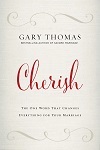Breaking Out of the Death Spiral of Contempt

Before being appointed commissioner of Major League Baseball in 1989, Bart Giamatti already had an impressive resume as a professor of English Renaissance Literature and president of Yale University.
Unfortunately, his tenure as commissioner of Major League Baseball was cut painfully short when he died of a heart attack just five months into his service.
The night before Giamatti died, he was at a baseball game, sitting in front of a cardiologist. The cardiologist noticed Giamatti’s fingernails and became alarmed. He warned him that he needed to see a heart doctor right away.
I’m not a doctor so I don’t know what the cardiologist saw, but to a trained eye, the symptom of heart disease was all too obvious.
Within hours, Giamatti was dead.
The “heart disease” of marriage is contempt, and there are tell-tale symptoms that we ignore in our own marriage (or others) at our peril. Remember that cliché, “familiarity breeds contempt?” Nothing is more familiar than marriage. Marriage to a less than perfect person, absent an understanding of grace and a commitment to cherish each other, can lead to disappointment, which leads to frustration, which leads to bitterness, which leads to contempt.
Here’s how it works spiritually:
Disappointment à Frustration à Bitterness à Contempt
This is a spiritual journey before it is a marital one and it’s a terrible one at that. Contempt unleashes the “death spiral” of disappointment leading to frustration, frustration leading to bitterness and bitterness exhibiting itself in contempt. This cycle is like a living snowball that feeds itself and gets hungrier as it grows.
I’ve seen couples look so lovingly at each other on their wedding day. It always inspires me. But I also see plenty of couples who come into my pastor’s office with eyes blocked by cataritic contempt. Instead of gazing at each other as the couples on their wedding day do, couples with contempt stare like a dagger at the ground, or off to the side, when their spouse is talking—they can’t bear to look at each other except when they’re ready to pounce back with a verbal assault. Just think about how sad this is: getting absolutely no pleasure looking at your spouse; instead, you look to attack, not to adore.
Contempt-laden eyes are locked and loaded, ready to fire. You’ve never seen impatience like you’ve seen it in the eyes of a spouse who is just waiting for her spouse to stop talking, to take one-tenth of a breath, so that she can jump in and explain how he couldn’t be more wrong, and she has proof.
It even leads to bizarre behavior. An angry wife literally screamed at her husband in my office with the accusation, “See, you don’t listen to me, you won’t even answer my question!” after he had just gently and calmly answered her question. Her contempt was so thick she couldn’t hear what he was saying, even though that was her critique of him. She was, at least at that moment, blinded and deafened by her contempt. That’s why I call it “cataritic” (cataracts) contempt. It’s blinding. It affects our vision of each other. It has to be cured if the marriage is going to survive.
Dr. John Gottman, a marriage expert from the University of Washington, believes that contempt is the “single best predictor of relationship breakdowns.” He defines contempt as an attitude of superiority, evidenced by speaking down to your partner through name calling or direct insults. This is, of course, the exact opposite of how we have defined cherish, which opens our eyes to our spouse’s excellence, which is why cherishing is the best antidote to contempt.
Ironically, an attitude of superiority and “speaking down” to a partner is one of the most common failings of people who consider themselves mature Christians and who are married to “less mature” believers. Because they see themselves as “better” (they’d never use that word, but the concept drives their thinking) in the Lord, they start to define their spouse by their sins and failings, and leads them to an attitude of superiority and hyper-negativity. They don’t realize that their own attitude is the single biggest assault on their marriage, even more than what they’re criticizing in their spouse. They think they are the mature one for noticing the fault, not realizing they are the most destructive partner for obsessing over the fault.
Couples committed to cherishing each other do go to war, but never with each other. They go to war against contempt, especially their own.
I wrote Cherish in part to offer a plan to overcome the destructive impact of contempt. Rather than focus on avoiding the negative (contempt), however, I’d rather focus on the positive (the delight of cherishing the person you’re married to). But sometimes, as in this post, we have to describe eradicating the disease before people can even imagine what a healthy marriage might look like.
If you find yourself (or if you know a couple) in the death spiral of contempt, just know that it doesn’t have to be fatal. There is a spiritual cure, and it begins with an ancient goal of marriage, rooted in our vows: “I promise to love and to cherish until death do us part.”
The post Breaking Out of the Death Spiral of Contempt appeared first on Gary Thomas.



